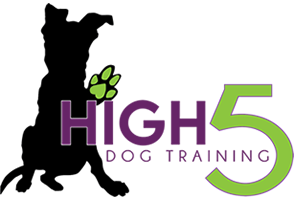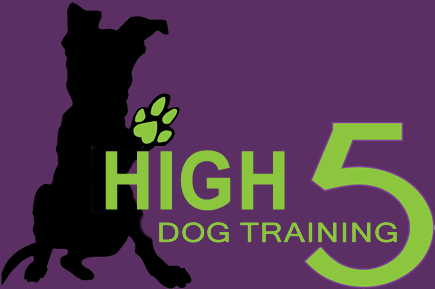The Dallas-Fort Worth (DFW) area in Texas is a vibrant, fast-growing region full of opportunities for both people and their furry companions. Spanning urban centers, suburban neighborhoods, and scenic parks, DFW is a fantastic place to raise a dog—whether you’re strolling through one of the many dog-friendly parks, enjoying pet-friendly patios, or exploring outdoor adventures. However, with its unique mix of urban and suburban living, having a well-trained dog in DFW isn’t just a convenience—it’s a necessity for a stress-free and enjoyable life with your four-legged friend.
Life with a Dog in DFW
The DFW area boasts a dog-loving culture with plenty of amenities designed to make pet ownership a joy. With sprawling parks like White Rock Lake Dog Park in Dallas or the Fort Woof Dog Park in Fort Worth, there are endless opportunities to let your dog run, play, and socialize with other pups. Many neighborhoods feature walking trails, and restaurants with dog-friendly patios are easy to find, making it simple to include your dog in your everyday life.
However, the bustling environment of DFW also comes with its challenges. The urban settings are full of distractions like loud noises, busy streets, and other dogs, making proper training essential for keeping your dog safe and well-behaved. Suburban areas may offer more space, but they still require a dog that listens and respects boundaries, especially in neighborhoods with other pets or young children. Whether you live in the heart of Dallas, a Fort Worth suburb, or somewhere in between, dog training is key to a harmonious relationship with your pet.
The Value of Dog Training for All Dogs
Regardless of the size, breed, or age of your dog, training provides benefits that go far beyond solving problem behaviors. It’s about creating a strong bond, improving your dog’s quality of life, and ensuring their safety. Dogs thrive when they understand expectations and have clear communication with their owners. That’s where professional dog training—like the services provided by High 5 Dog Training, serving the Dallas-Fort Worth area—comes into play.
Here’s why training is vital for every dog:
- Safety First: Whether it’s teaching your dog to reliably come when called or ensuring they don’t dart into busy DFW streets, training can literally save your dog’s life. Commands like “leave it” or “stay” are crucial in preventing accidents and protecting your pup in high-risk situations.
- Behavioral Problems Addressed Early: Many people think training is only for “problem dogs,” but that couldn’t be further from the truth. Even well-behaved dogs benefit from consistent training to reinforce good habits. For dogs with issues like jumping, leash pulling, or excessive barking, professional training helps redirect these behaviors in a positive and effective way.
- Socialization Skills: In a bustling area like DFW, your dog will encounter people, other dogs, and new environments regularly. Training helps your dog remain calm and confident in social settings, whether you’re visiting a dog-friendly brewery or walking in a crowded park.
- Stronger Bond Between Dog and Owner: Training isn’t just about commands—it’s about building trust and communication between you and your dog. When your dog knows what’s expected of them and you understand how to communicate effectively, your relationship flourishes.
- Freedom to Explore More Places: A well-trained dog is welcome in more places! Imagine being able to bring your dog to a dog-friendly café in downtown Dallas or a family gathering without worrying about bad behavior. Training opens up these possibilities and makes outings enjoyable for everyone.
- Preventing Problems Before They Start: Puppies and even adult dogs often develop bad habits simply because they don’t know any better. Professional training sets your dog up for success by teaching them proper behavior before issues escalate. From housebreaking to impulse control, training builds a strong foundation for a lifetime of good manners.
Why High 5 Dog Training is Your DFW Dog Training Partner
In a city as dynamic as Dallas-Fort Worth, dog training is more than just a convenience—it’s an essential part of responsible dog ownership. That’s where High 5 Dog Training comes in. Serving the DFW area, we specialize in helping dogs and their families thrive together. Whether you’re raising a puppy, working on leash manners, or addressing behavioral challenges, we’re here to provide tailored training solutions that work for you and your dog.
Our experienced trainers use proven, positive reinforcement methods to make training fun, effective, and stress-free. From the bustling streets of Dallas to the quiet neighborhoods of Fort Worth, we understand the unique challenges of dog ownership in this area and are dedicated to helping you overcome them. With High 5 Dog Training, you’ll not only have a well-behaved dog—you’ll have a happier, more fulfilling relationship with your furry companion.
So, whether you’re navigating the busy sidewalks of the DFW metroplex or enjoying a peaceful afternoon at a dog park, having a well-trained dog makes every moment better. Contact High 5 Dog Training today and let’s make life in Dallas-Fort Worth the best it can be for you and your pup! 🐾
Dog parks can be a wonderful place for exercise, socialization, and fun, but they also come with certain risks and downsides that dog owners should be aware of. While they may seem like a perfect solution to let your pup burn off energy and meet new friends, not every dog park is ideal for every dog, and the experience can sometimes lead to stress or even harm. At High 5 Dog Training, serving the Dallas-Fort Worth area, we believe in educating dog owners about the potential challenges of dog parks and how to navigate them safely.
Downsides of Dog Parks and Why Caution Is Key
- Unpredictable Interactions with Other Dogs
One of the biggest risks of dog parks is the unpredictability of other dogs. Not every dog at the park is well-socialized or under proper control. Aggressive or overly dominant dogs can cause conflicts, and these interactions can quickly escalate into fights. Even if your dog is friendly and well-behaved, they could still become a target or inadvertently get caught in a scuffle. High 5 Tip: Before entering a dog park, observe the behavior of other dogs and their owners. If you notice unruly or aggressive dogs, it’s better to skip the park that day. - Health Risks
Dog parks can be a breeding ground for illnesses and parasites. From kennel cough to intestinal worms, your dog may be exposed to various health issues if other dogs aren’t properly vaccinated or dewormed. Standing water, leftover food, or contaminated surfaces can also pose risks. High 5 Tip: Always ensure your dog is up-to-date on vaccinations, including Bordetella, and is regularly treated for fleas and ticks. Bring your own water and bowl to prevent sharing communal water sources. - Overstimulation or Fear
Not every dog enjoys the chaos of a dog park. For some, the sheer number of unfamiliar dogs, people, and stimuli can be overwhelming, leading to anxiety or fear-based behaviors. This is especially common in shy or under-socialized dogs. High 5 Tip: If your dog shows signs of stress—such as cowering, excessive barking, or trying to leave—respect their feelings and remove them from the situation. Gradual exposure to less crowded environments may help build confidence over time. - Poor Owner Supervision
Unfortunately, not all dog owners at the park are attentive or responsible. Some allow their dogs to engage in inappropriate or rough behavior, while others may not clean up after their pets. A lack of supervision can create a chaotic and unsafe environment for everyone. High 5 Tip: Stay vigilant and keep a close eye on your dog at all times. If you see concerning behavior from another dog or owner, don’t hesitate to leave. - Reinforcing Bad Habits
At dog parks, dogs are often allowed to engage in uncontrolled play, which can sometimes reinforce unwanted behaviors like excessive jumping, barking, or roughhousing. Without proper guidance, these habits can carry over into everyday interactions outside the park. High 5 Tip: Work on basic obedience and recall commands before visiting a dog park. A solid “come” or “leave it” command can help you maintain control and redirect your dog if needed. - Size and Temperament Mismatches
Not all dogs are compatible playmates. Larger or more boisterous dogs can unintentionally harm smaller, timid dogs, even during play. Similarly, dogs with conflicting play styles may not get along. High 5 Tip: Many dog parks have separate areas for small and large dogs—stick to the appropriate section. If your dog seems uncomfortable or is being overly targeted, it’s time to leave. - Risk of Injury
Rough play, running at high speeds, or collisions can lead to injuries at dog parks. Additionally, some parks may have hazards like broken fences, sharp objects, or uneven ground. High 5 Tip: Inspect the park for hazards before letting your dog loose. If the environment seems poorly maintained, consider finding another park or opting for a safer activity.
The Importance of Training Before Visiting Dog Parks
Before venturing into the unpredictable world of dog parks, it’s essential to ensure your dog has basic training and socialization skills. At High 5 Dog Training, we specialize in preparing dogs for social settings like parks, patios, and group environments. By teaching commands like “come,” “leave it,” and “stay,” you’ll have the tools to manage your dog’s behavior and keep them safe.
Additionally, proper training ensures your dog knows how to interact appropriately with other dogs, reducing the likelihood of conflicts. We also work with owners to identify whether their dog’s temperament is suited for dog parks or if alternative forms of exercise and socialization might be better.
Alternatives to Dog Parks
If dog parks feel too risky or overwhelming, there are plenty of alternatives to keep your dog happy and active:
- Private Playdates: Arrange play sessions with dogs you know and trust.
- Structured Training Classes: Join group classes at High 5 Dog Training for socialization in a controlled environment.
- Leashed Walks and Hikes: Explore DFW’s many trails and parks with your dog on a leash.
- Enrichment Activities: Try puzzle toys, games, or backyard agility setups for mental and physical stimulation.
Dog parks can be fun and beneficial when approached carefully, but they’re not the right fit for every dog. By prioritizing safety, training, and your dog’s individual needs, you can create positive experiences that enhance your bond with your furry companion. If you’re unsure whether your dog is ready for the park or need help building their skills, contact High 5 Dog Training today—we’ll help set you and your pup up for success! 🐾


